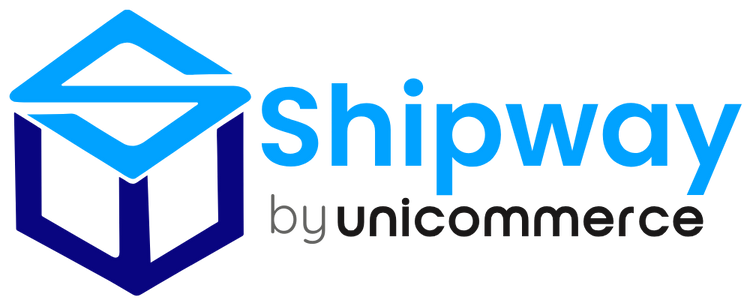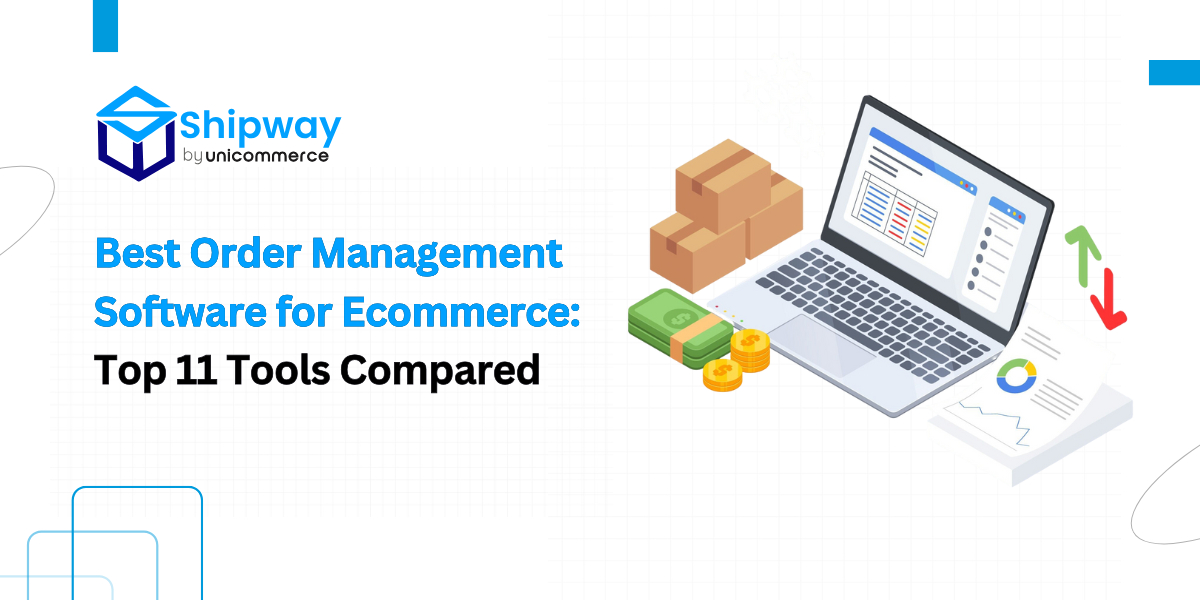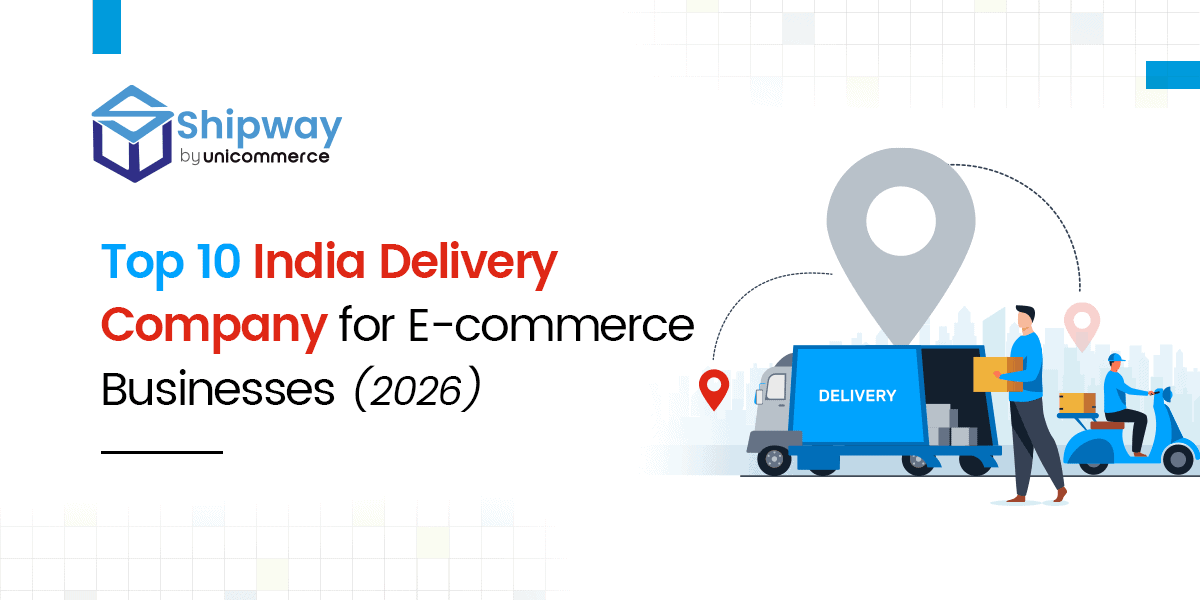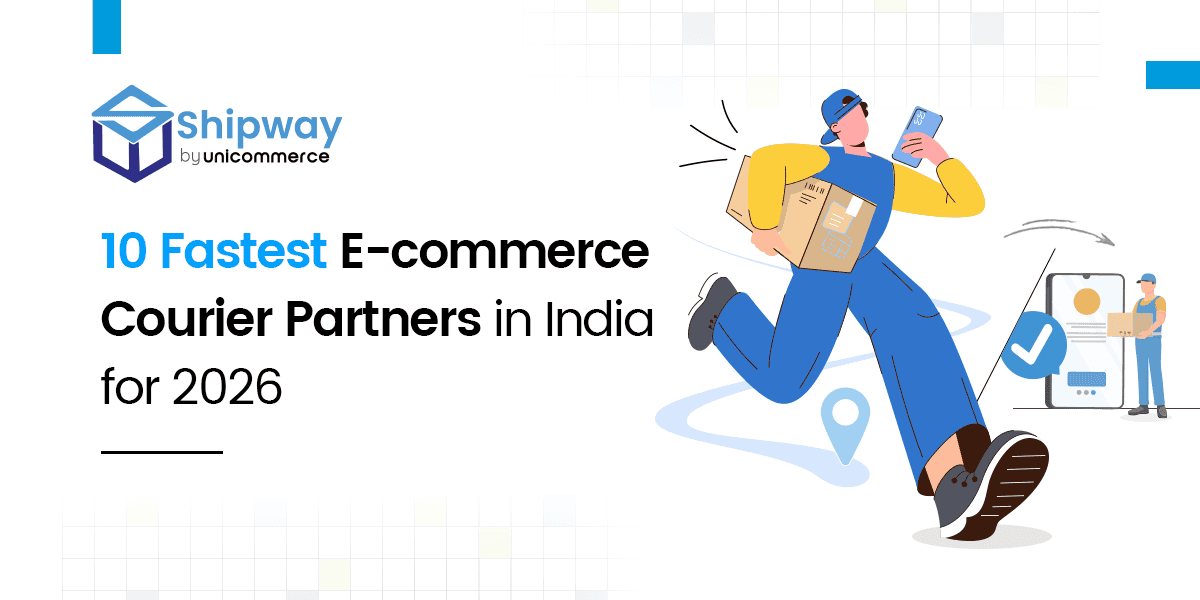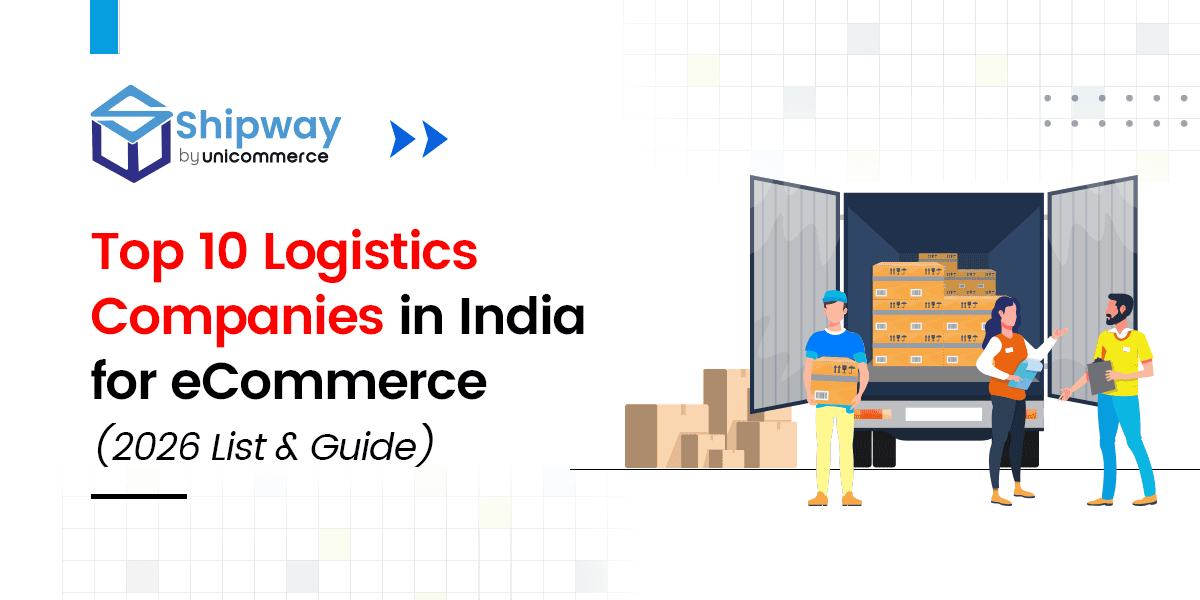In the current ecommerce world, efficiency is the key to quick digital growth and better customer satisfaction. To simplify the chaos of multiple POS channels like Shopify, quick commerce and order ecommerce marketplaces, order management software is an essential solution for businesses that want to manage their processes, reduce errors, and enhance customer experience.
Using the help of the right OMS, companies can track orders, manage inventory, integrate with multiple channels, and even forecast demand. The guide below will explore the top ecommerce order management software options available in the market. We will also examine their key features, benefits, and potential drawbacks. So, let’s dive in.
- Unicommerce
Unicommerce is an ecommerce order management solution that manages order lifecycle for ecommerce businesses. It centralizes orders from multiple channels, i.e. online stores, marketplaces, or offline outlets and provides a single unified dashboard. This helps in getting proper real-time visibility, automated workflows, and inventory management. All this improves the operational efficiency and customer satisfaction.
Features
- Multi-Channel Integration: It quickly connects and manages orders from various online and offline sales channels.
- Centralized Order Management: Unicommerce consolidates orders into one unified dashboard for easy tracking and processing.
- Real-Time Inventory Tracking: Unicommerce monitors stock levels across all channels to prevent overselling and optimize inventory.
- Automated Fulfillment Processes: It provides proper order routing and logistics integrations for faster and more efficient delivery.
- Advanced Reporting & Analytics: It helps in gaining better actionable insights into sales trends and inventory performance.
- Robust Integration Capabilities: Unicommerce can be integrated with ERP systems, third-party logistics players, and shipping carriers.
Pros
- Unicommerce’s automation and centralized management systems reduce manual efforts, speeding up the order-to-delivery cycle.
- A unified dashboard provides complete visibility over orders and inventory and better decision-making.
- The platform is built to grow with your business and further handle the increased order volumes and expanding sales channels.
- It provides faster order processing and real-time updates leading to improved delivery times and higher customer satisfaction.
- Quick connections with various external systems reduce operational silos and better workflows.
Cons
- Integrating with existing systems or setting up unique business workflows may require significant time and technical expertise.
2. TradeGecko (Now QuickBooks Commerce)
Overview
TradeGecko, now rebranded as QuickBooks Commerce, is a powerful order management platform tailored for small to medium-sized businesses. It provides Quick integration with accounting software, inventory management, and multiple ecommerce channels.
Key Features
- Multi-channel integration: Connects with major platforms like Shopify, WooCommerce, and Amazon.
- Inventory management: Real-time updates to avoid overselling and stockouts.
- Order processing automation: Reduces manual data entry and errors.
- Detailed analytics: Provides insights on sales trends, inventory turnover, and customer behavior.
Pros & Cons
Pros:
- Easy integration with popular ecommerce platforms.
- Scalable solution for growing businesses.
- Detailed reporting and analytics.
Cons:
- The learning curve for new users can be steep.
- Advanced features may require premium pricing.
3. Skubana
Overview
Skubana provides a unified platform that centralizes order, inventory, and analytics management. It is designed for high-volume sellers and is known for its powerful automation capabilities.
Key Features
- Unified dashboard: Combines order management, inventory control, and shipping processes.
- Automation: Automates repetitive tasks like order routing and inventory adjustments.
- Comprehensive reporting: Customizable reports for sales, inventory, and operational efficiency.
- Integration capabilities: Supports multiple sales channels and third-party logistics solutions.
Pros & Cons
Pros:
- Excellent automation features for high-volume operations.
- powerful analytics tools for strategic decision-making.
- Flexible integration options.
Cons:
- Can be expensive for smaller businesses.
- Complex setup may require technical support.
4. Orderhive
Overview
Orderhive is an all-in-one order and inventory management system designed for multichannel businesses. It simplifies operations by integrating sales channels, shipping, and warehouse management.
Key Features
- Multi-channel integration: Supports various marketplaces and shopping carts.
- Inventory synchronization: Real-time inventory updates across all channels.
- Shipping integration: Connects with popular carriers to manage fulfillment.
- Automated workflows: Saves time by automating repetitive tasks.
Pros & Cons
Pros:
- Cost-effective solution for growing businesses.
- User-friendly interface.
- Extensive integrations with ecommerce platforms.
Cons:
- Limited customization options compared to enterprise-level solutions.
- Occasional syncing delays reported by users.
5. Brightpearl
Overview
Brightpearl is a cloud-based OMS designed for retailers and wholesalers. It not only manages orders but also incorporates back-office functions like accounting and CRM, making it an ideal all-in-one solution.
Key Features
- Omnichannel support: Integrates with retail and online sales.
- Automated workflows: Reduces manual entry and manages operations.
- Comprehensive dashboard: Provides a bird’s-eye view of the entire business.
- Financial integration: Built-in accounting and CRM functionalities.
Pros & Cons
Pros:
- All-in-one solution for comprehensive business management.
- Scalable architecture which is suitable for growing enterprises.
- Strong support for brick-and-mortar integration.
Cons:
- Higher cost compared to standalone OMS solutions.
- Implementation can be time-consuming.
6. Zoho Inventory
Overview
Zoho Inventory is part of the Zoho suite of business applications. It provides a unique set of tools for managing orders, inventory, and shipments, making it a great fit for small to medium businesses.
Key Features
- Omnichannel selling: Integrates with popular ecommerce platforms like Amazon, eBay, and Shopify.
- Inventory tracking: Monitors inventory levels in real-time across multiple warehouses.
- Order management: manage the order processing workflow from creation to fulfillment.
- Integrated shipping: Partners with top carriers to facilitate easy shipping.
Pros & Cons
Pros:
- Quick integration with the broader Zoho ecosystem.
- Affordable pricing with scalable features.
- Intuitive design and user-friendly interface.
Cons:
- Some advanced features require additional subscriptions.
- May lack depth for very high-volume enterprises.
7. NetSuite
Overview
NetSuite is an enterprise-grade ecommerce platform that includes order management features. It is designed for large businesses and provides extensive customization options.
Key Features
- Comprehensive integration: Merges ecommerce, CRM, and ERP functionalities.
- Real-time analytics: provide deep insights into order processing and sales performance.
- Scalable architecture: Designed to support the growth of large enterprises.
- Customization: Highly configurable to meet unique business requirements.
Pros & Cons
Pros:
- A fully integrated system covering all aspects of ecommerce.
- Scalable and highly customizable.
- Real-time data insights.
Cons:
- High cost and complexity may not suit smaller businesses.
- Requires expert implementation and ongoing management.
8. Magento Order Management
Overview
Magento, now part of Adobe Commerce, provides a powerful order management system built into its ecommerce platform. It caters to businesses that need a high degree of customization and flexibility.
Key Features
- Advanced customization: Highly configurable to match unique business needs.
- Quick integration: Integrates with multiple back-office systems and third-party applications.
- Robust analytics: Provides detailed insights into order performance.
- Omnichannel support: Integrates online and offline sales channels.
Pros & Cons
Pros:
- Highly flexible and customizable.
- Strong support for omnichannel commerce.
- Extensive community support and documentation.
Cons:
- Complex implementation process.
- Requires technical expertise for optimal use.
9. Linnworks
Overview
Linnworks is a comprehensive order management platform known for its ability to centralize ecommerce operations. It is particularly popular with businesses that operate across multiple ecommerce marketplaces.
Key Features
- Centralized control: Manages orders, inventory, and listings from one dashboard.
- Marketplace integrations: Supports integration with over 100 marketplaces.
- Automation: manage order processing and shipping tasks.
- Reporting: Detailed analytics to monitor performance.
Pros & Cons
Pros:
- Excellent for multichannel sellers.
- Automates repetitive tasks efficiently.
- Extensive marketplace integrations.
Cons:
- User interface can be overwhelming for beginners.
- Customization options are limited in certain areas.
10. Veeqo
Overview
Veeqo helps manage order fulfillment for growing ecommerce brands by providing an easy-to-use platform that integrates order, shipping and inventory management into one system.
Key Features
- Centralized order processing: Veeqo manages orders from multiple sales channels in one place.
- Inventory synchronization: It keeps track of stock levels across warehouses.
- Shipping integration: Veeqo connects with top shipping carriers.
- Analytics: It Provides detailed reports to help optimize operations.
Pros & Cons
Pros:
- User-friendly interface suitable for small and medium businesses.
- Good integration with shipping carriers.
- Affordable pricing structure.
Cons:
- Some users report occasional syncing issues.
- May lack advanced features needed by large enterprises.
11. Multiorders
Overview
Multiorders is an order management and shipping solution that simplifies the process of managing orders across multiple platforms. It is designed to help online sellers process orders & manage shipping operations.
Key Features
- Multi-channel integration: Multiorders consolidates orders from various online marketplaces and shopping carts.
- Shipping automation: It Automates label creation, tracking, and carrier selection.
- Inventory synchronization: Multiorders keeps inventory levels updated across all channels.
- Customizable rules: It automates order routing and fulfillment processes based on customizable criteria.
Pros & Cons
Pros:
- Ideal for businesses with a diverse sales portfolio.
- Strong shipping automation features.
- Intuitive interface with easy setup.
Cons:
- Some users may find advanced customization options limited.
- Customer support quality can vary based on the plan selected.
Conclusion
Finally, selecting the best ecommerce order management software is an important decision that affects every aspect of your business- from order fulfillment and inventory accuracy to customer satisfaction and operational efficiency. Each of the above-discussed software highlighted in this guide has been developed with unique features and targeted capabilities. They give you a solution that fits your specific needs. The right OMS will not only manage your operations but also increase the chance of ecommerce success.
You need to invest time in researching and testing these systems today which can lead to improvements in order processing efficiency, reduced operational costs, and a superior customer experience tomorrow. With the ecommerce market continuing to evolve rapidly, staying ahead with the best order management software will give your business an advanced edge in both domestic and international markets.
After using any one of these top ecommerce order management solutions, you’re not just buying software, but you’re investing in a system that will help you manage complexities, improve operational workflows, and drive your business forward in an increasingly digital marketplace.
You may also like…
Top 10 India Delivery Company for E-commerce Businesses (2026)
Choosing the right India delivery company is crucial for eCommerce businesses looking to provide fast, reliable, and cost-effective shipping. The...
read more10 Fastest eCommerce Courier Partners in India for 2026
Finding a fast delivery service in India has become essential for every growing eCommerce brand. With customer expectations rising rapidly, online...
read moreTop 10 Logistics Companies in India for eCommerce (2026 List & Guide)
Introduction: Why Logistics Matters for India’s Growing eCommerce Sector The Indian eCommerce sector has witnessed tremendous growth, projected to...
read more